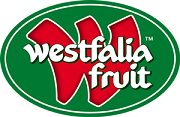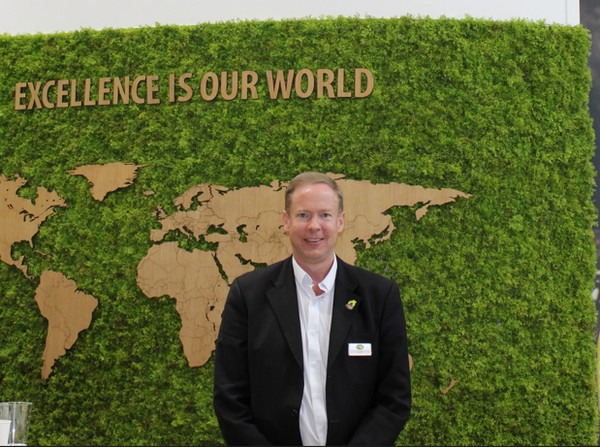“Fortunately avocados are a robust product which have become part of people’s eating habits. That makes them more resistant to the ups and downs in the world,” says Westfalia Fruit’s Business Development Executive Zac Bard, speaking of the relatively modest impact of the current economic dynamic on the avocado market. "It went well through the Covid-years and the markets in Europe keep on going."
He mentions that this goes, for instance, for markets like Italy, despite the Covid related lockdown. "That is exciting. It is a new market where some four years ago avocados were almost unknown and now you start to see consumption growing there. Italy has got a large and health conscious population. We believe Italians will discover the avocado fits into their diet well." He also reports growth over the past year in France and the Netherlands and expects to see further growth in Germany.
Facility in France
It has led to the construction of a new Westfalia facility in the south of France. "This way we are able to cover all of France, but also have more access to Italy and Spain," says Danielle Willems, Group Communications and PR Executive. She mentions that activities will include avocado storage, ripening and packing.
And Zac points out that there still are opportunities for avocado's. “At around 1.8 kilo, the per capita consumption in Europe is still relatively low compared to for instance the USA where the average per capita consumption lies around 4 kilo. This gives us good potential to grow in Europe, Eastern Europe and surrounding countries, in the future.” Also the fact that millennials love avocado's bodes well for the future, thinks the business development executive.
Asia: the last frontier for avocado’s growth
In a more global perspective Zac notes opportunities in Asia. "The last frontier for the avocado market is Asia, which has two thirds of the world's population. Apart from Japan it remains an undeveloped market, creating a very exciting future. From the Westfalia side we are investing in India. We think India could be the next growing market for the fruits, if it is developed in a correct way. It will not be easy with the lack of infrastructure and cooling, but there is a population of 1.4 billion people in India with some 200 million being the target market, so there is potential to develop avocado's in India in a big way." Currently Westfalia is setting up local production in India. "We will develop the local avocado industry in India and import from nearby Africa, from where shipping only takes eight days."
Young product
Zac mentions that the avocado, with a development of only 70 years, is a relatively young product if you compare it to for instance citrus and grapes that have been grown for thousands of years. “We are still learning a lot and there are still a lot of new developments.” One of those developments is in the field of genetics. “The industry is working on new cultivars, so that we are not dependent on just one cultivar. Hass is the dominant cultivar, but new ones are coming in. Avocado does not want to be dependent on identical genetics.”
Another development in that area is the research Westfalia has done on disease-tolerant rootstocks. "Phytophthora for avocado was one of the largest challenges in the 1980’s. These rootstocks are developed for phytophthora-tolerance, which was the biggest issue in the industry during the 1970's and '80's. Thanks to a lot of research and development we are ahead of the curve now."
Zac concludes that this tolerance brings the need for crop protection on avocado's - which is low anyway, because the fruit does not contain a lot of sugar and therefore does not attract many pests - further down.
Organic
Westfalia sees that, in some parts of the world, the market for organic avocado’s is evolving and wants to make sure its production grows in line with market demand. "It is a small but growing percentage. Like any organics it is not easy to do. You also have to take into consideration that in organic production the yield goes down, causing the price to rise. Not obvious in the current times.” However Zac adds that conventionally produced avocados are sustainable and almost organic too.
"Any good grower is growing avocado's in a sustainable way. The avocado is falsely accused of being bad for the environment in terms of for instance water use and that has been a concern for the industry."
Zac mentions that from World Avocado Organization (WAO - that represents some of the world's largest avocado producers, exporters and importers) calculations it appears that avocado – when it comes to the use of water - is in a good position regarding sustainability.
"The water use per hectare is in line with the other tree crops such as apples, pears or bananas. But if the nutritious value is also taken into account, the water footprint of the avocado is actually excellent." Zac adds to that there are many avocado production area's that do not need irrigation at all, as the natural rainfall is sufficient.
Social footprint
Besides the water foot print, Westfalia also focusses on the social footprint. Zac explains that the avocado production, that mainly takes place on small and medium sized family owned farms, has a huge impact on the social circumstances in the production area's with the company adding to that by establishing partnerships. "We grow partnerships with smallholder farms in some of the poorer and more remote regions of the world to help provide access to global markets and empower them to build sustainable livelihoods."
Another element of that is that in some countries where many avocados are exported, a lot of the fruit is consumed in the country of origin as well. "The first class avocados are exported and the class II fruits find their way on the domestic market. That is what we have seen in some of the producers of avocados in the world. Mexico, Chile and Israel, also have the highest per capita consumption, based on the non-exported fruits. That creates balance and provides a use for the entire production."
For more information:  Westfalia Fruit GmbH
Westfalia Fruit GmbH
Schäftlarnstr. 8
81371 München, Duitsland
Tel: +49 (0) 89 720140
[email protected]
www.westfaliafruit.com











